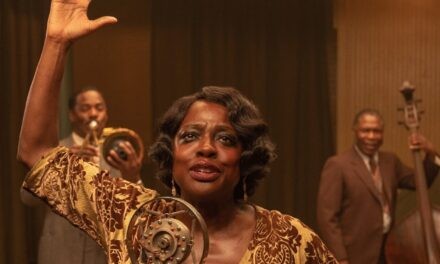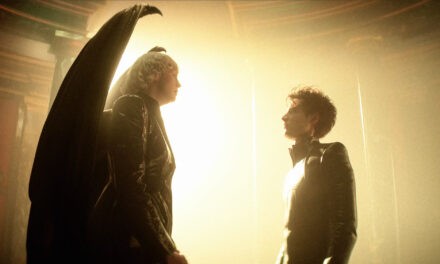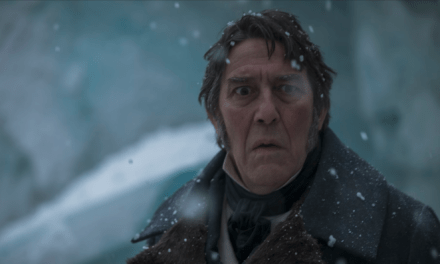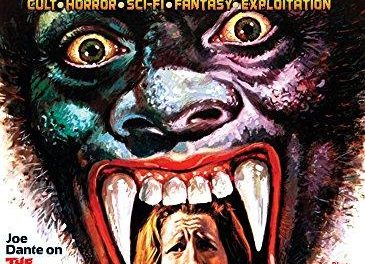The University of Amsterdam, the Free University of Amsterdam and Utrecht University
are happy to present
The NECS 2018 Conference
Media Tactics and Engagement
27-29 June 2018
Hosted by the University of Amsterdam and the Free University of Amsterdam
Pre-Conference
Media in Transition
26 June 2018
Hosted by Utrecht University
Post-Conference
Open Access in Media Studies
30 June 2018
Hosted by the Netherlands Institute of Sound and Vision
Deadline for submissions: 31st of January 2018
(see www.necs.org/faq for more details, please check this info early enough to guarantee payment on time).
Pay the fee in January to get access for the full calendar year.
Please submit all proposals using the submission form available at:
The changing media landscape requires continuous (re)invention of the ways in which photography, film, television, digital media, and the arts are produced, distributed, accessed, and consumed. Back in the past like today, the question of media tactics and engagement is crucial once more. Today the question seems even more urgent, since large corporations provide platforms and services that foster the desired behaviour of the average media viewer/user/consumer and produ(c/s)er; nevertheless, in previous decades, ways of planning long-term strategies, tactical reactions to unforeseen circumstances and engagement have determined media practices and discourses. The NECS 2018 conference will explore the various – both intended and/or subversive − ways in which media are currently developed, deployed and distorted.
The conference welcomes a wide range of approaches to thinking about the notions of tactics and engagement across all forms of media.
Firstly, this could include thinking of tactics as the means to an overarching strategic end. Thus the term can draw attention to larger trends within the media industries and its practices. Why and to what effect do film and media distributors order and/or produce original content? What are the aesthetic consequences of this, both for artistic content as well as for the audience experience? What roles do shifts in modes of address, distribution, and exhibition venues play? And what kind of opportunities and constraints for content producers arise from this?
Secondly, following Michel de Certeau, the political consequences of the relation between strategy and tactics can be investigated. Strategy as a long-term modus operandi of the prevalent political, economic and scientific rationality is opposed to tactics as the improvisational, context-specific techniques developed by individuals or collectives to better navigate strategically shaped spaces. Tactics in this sense oftentimes insert themselves into strategic environments without disrupting them – for instance when novelists develop new writing techniques in response to Amazon’s arguably exploitative pay-per-page model, or exiled filmmakers react to changed production constraints through what Hamid Naficy termed “accented cinema”. In fact, strategy and tactics deeply affect media practices as much as their aesthetics, and often result in consistent planning, or momentary options, which seem viable. How do these two terms interact, when it comes to aesthetics? Through this conceptual pair, one may thus ask to what different strategic and tactical uses various media enter political discourse, and again, what the consequences of this could be for industrial and artistic media practices.
The notion of engagement opens up a third and more general dimension of the conference theme, pointing towards the various ways in which viewers and users engage with the media of their choice, both in the past and today. How have individuals or collectives (tactically) engaged cinema, television, photography, radio, the arts, the archive, the news, the internet, and so on? And what kind of important changes can be scrutinized in such practices? Furthermore, we invite submissions that discuss forms of disengagement, such as “media fasting” or “going off the grid”.
The NECS 2018 conference will tackle the issue of media tactics and engagement while including the many different research perspectives pursued by the members of our community.
Submissions may include but are not limited to the following topics:
- New and old media industry practices
- Histories of media tactics and engagement
- Activist media and media activism (including politics and celebrity)
- Studies of subversive narratives in film and cross-media
- Political cinema, documentary, art and television
- Avant-garde and new wave tactics
- Ecocritical media and the Anthropocene
- Infrastructures of engagement (collective venues, networks, institutional policies etc.)
- Articulations of identity politics or power dynamics through media
- Self-performance: strategy, tactics, engagement
- Materialities of media engagement
- Culture jamming, remixing, mashing, and other transformative and fan practices (from cosplay to conventions)
- Strategic aesthetic practices (e.g. satire, horror, melodrama, tragicomedy)
- Bottom-up funding initiatives (collective production, political cinema, media activism, crow-funding practices)
- (New) Sound and music tactics and engagement
- Distribution models, between strategy and tactics, from early media to contemporaneity
- Strategy and tactics in a post-truth world
- Economies and ecologies of attention, including slacktivism, boredom and various forms of disengagement such as “media fasting” or “going off the grid”
- Viral or spreadable media, as well as hacking tactics
- Curatorial engagement and programming practices
- Transmedia practices
- Academic engagement
- Teaching and research as media tactics
- Media-archaeological media tactics engaging with analogue media
Scholars from all areas of cinema and media studies, whether previously affiliated with NECS or new to the network, are invited to submit proposals, but NECS membership is a requirement.
FORMATS
Please note that individuals may submit only one paper proposal, either as individual presenters or as part of a pre-constituted panel or workshop.
Individual papers
Individual presenters wishing to submit a proposal for a paper presentation of max. 20 minutes are required to provide their name, email address, the title of the paper, an abstract, key biographical references, and a short bio of the speaker.
Pre-constituted panels
We support the submission of proposals for pre-constituted panels with 3 or 4 papers (3 papers only if there is a respondent) in order to strengthen the thematic coherence of panels. Furthermore, several thematically related panels may form larger clusters. We would like to strongly encourage members of the NECS workgroups to put together pre-constituted panels, but we also welcome submissions from academic research project teams, museums, archives, and other institutions. We highly recommend no more than two speakers from the same institution with a maximum of 20 minutes speaking time each. Panel organizers are asked to submit panel proposals that include a panel title, a short description of the panel and information on all of the individual papers of the panel, as described above.
Workshops
Events such as workshops, roundtables or seminars – both pre-conference and conference – concentrating on more practical aspects of our field, e.g. teaching, research methods, publishing, or networking with the media industry are also welcome. Speaking time should be limited to 10 minutes per participant. Organizers are asked to submit workshop proposals that include a title and a short description.
Workgroups
There will be opportunity for the NECS workgroups to meet during the conference. Please notify the conference organizers if you wish to hold a workgroup meeting: necs2018amsterdam@gmail.com.
Please submit all proposals before the 31st of January 2018 using the submission form available at: http://necs.org/conference/proposal-submission-form/
Participants will have to cover their own travel and accommodation expenses. Travel information, a list of local hotels and information on further events will be posted on the NECS conference website in Spring 2018.
See also: http://necs.org/faq.
Please email all inquiries that cannot be answered by the FAQ to:
ACCOMPANYING EVENTS
The 16th NECS Graduate Workshop
The NECS Graduate Workshop has been designed to give scholars at the beginning of their career a platform for networking with established European film and media scholars. The 16th NECS Graduate Workshop in Utrecht (25 June 2018, Utrecht University) is dedicated to the topic of ‘To Prefer Not To: Media Inoperativities’.
You will find the CfP online at: http://necs.org/conference/callforpapers2018/cfp_gw2018/
Please send your submission with an abstract (max. 200 words) and a short bio (max. 150 words) to: graduates@necs.org
Organizers: Christian Sancto (Utrecht University), Alba Gimenez (University of South Wales) and Jiyu Zhang (Leiden University)
Pre-conference “Media in Transition”
Utrecht University hosts an one-day event with round-table discussions about “Media in Transition” that addresses the transformations of the highly dynamic field of the media industry. For more information about the programme and registration, please see https://mit.sites.uu.nl/
Organizers: Karin van Es, Judith Keilbach, Nina Köll, Hanna Surma, and Nanna Verhoeff
Post-conference workshop “Open Access in Media Studies”
A Post-conference Open Access workshop will be held at the Netherlands Institute for Sound and Vision, in cooperation with VIEW: Journal of European Television History and Culture, NECSUS: European Journal of Media Studies, and Open Access in Media Studies website. For more information about the workshop and registration, please see https://oamediastudies.com
Organizers: Jaap Kooijman, Jeroen Sondervan, and Jefferson Pooley
NECS 2018 CONFERENCE ORGANIZERS
NECS Steering Committee: Sophie Einwächter, Judith Keilbach, Skadi Loist, Michał Pabiś-Orzeszyna, Francesco Pitassio, Antonio Somaini, Alena Strohmaier.
NECS Conference Committee: Marie Aude Baronian, Luca Barra, Sudeep Dasgupta, James Harvey-Davitt, Rahma Khazam, Daniel Kulle, Raphaëlle Moine, Michał Pabiś-Orzeszyna, Antonio Somaini, Jan Teurlings.
Local organizing team: Marie Aude Baronian, Sudeep Dasgupta, Jaap Kooijman, Halbe Kuipers, Toni Pape, Patricia Pisters, Jan Teurlings, Maryn Wilkinson (UvA); Ivo Blom, Sebastian Scholz (VU), Laura Copier, Judith Keilbach, Anne Kustritz, Clara Pafort-Overduin, Christian Sancto, Hanna Surma, Marijke de Valck (UU).
… and please watch the CONFERENCE TRAILER at: https://vimeo.com/222803817
–





